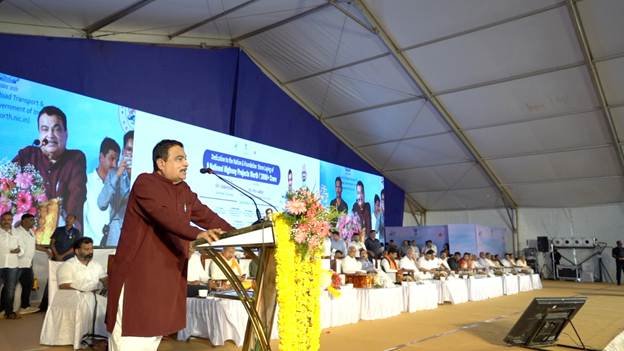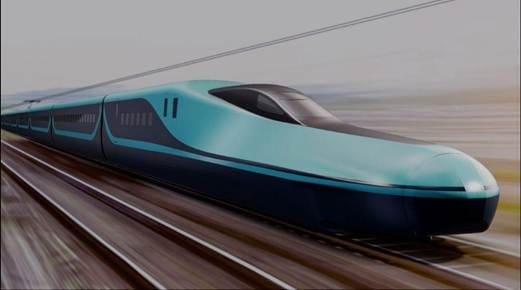Ministry issues notification for simplification of rooftop programme
The Ministry of New and Renewable Energy is implementing Rooftop Solar Programme Phase-II for 4,000 MW rooftop solar (RTS) capacity addition to its target for the residential sector through Central Financial Assistance (CFA).
CFA up to 40% of the benchmark cost is provided for RTS projects up to 3 kW capacity and up to 20% for RTS system capacity beyond 3 kW and up to 10 kW for individual households, R.K. Singh, Minister for Power and New and Renewable Energy, said in a written reply in Rajya Sabha on 22 Mar 2022.
For Group Housing Societies and Residential Welfare Associations (GHS/RWA), CFA is limited to 20% for RTS plants for supply of power to common facilities maximum 500 kW capacity.
In addition, incentives up to 10% of cost of rooftop solar is provided to Distribution Utilities depending upon achievements in capacity addition above baseline.
The Programme is demand driven and capacities are allocated based on demand received from Distribution Utilities and other state implementing agencies, he said.
The Ministry has so far allocated 3,162 MW of capacity for the residential sector.
Against the allocated capacity of 3,162 MW, a total 1,252 MW capacity has been reported installed as on 28 Feb 2022.
Grid connectivity for rooftop solar projects including net-metering is provided by distribution utilities as per regulations notified by the respective State Electricity Regulatory Commission and Joint Electricity Regulatory Commissions. These regulations are notified by regulatory commissions after stakeholder consultation and are amended from time to time.
The Ministry regularly reviews the progress of implementation of the programme including the net-metering problems with distribution utilities and advises corrective steps to resolve the same.
MNRE has also issued a notification for simplification of Rooftop Solar programme which inter alia includes online application for net- metering approval, he said.
The Government has also taken a number of initiatives for incentivizing local development and manufacturing of renewable energy technologies.
These are:
Modified Special Incentive Package Scheme (M-SIPS) Scheme of Ministry of Electronics & Information Technology: The scheme mainly provides subsidy for capital expenditure – 20% for investments in Special Economic Zones (SEZs) and 25% in non-SEZs. The Scheme was open to receive applications till 31 December, 2018. The Scheme inter-alia covers solar PV cells, solar PV modules, EVA, backsheet and solar glass.
Preference to ‘Make in India’ in Public Procurement in Renewable Energy Sector: Through implementation of ‘Public Procurement (Preference to Make in India) Order’, procurement and use of domestically manufactured solar PV modules and domestically manufactured solar inverters has been mandated for the Government and public entities.
Domestic Content Requirement (DCR): Under some of the current schemes of the MNRE, namely CPSU Scheme Phase-II, PM-KUSUM and Grid-connected Rooftop Solar Programme Phase-II, wherein government subsidy is given, it has been mandated to source solar PV cells and modules from domestic sources.
Imposition of Basic Customs Duty on import of solar PV cells & modules: The Government has announced imposition of Basic Customs Duty (BCD) on import of solar PV cells and modules with effect from 1 April 2022.
Production Linked Incentive (PLI) Scheme for High Efficiency Solar PV Modules: MNRE has issued the Scheme Guidelines for Production Linked Incentive Scheme ‘National Programme on High Efficiency Solar PV Modules’, with an outlay of Rs.4,500 crores for supporting manufacturing of high efficiency solar PV modules by providing Production Linked Incentive (PLI) on sales of such solar PV modules.
Letters of Award have been issued to the eligible successful bidders to the extent of funds allocated (i.e. the present scheme outlay of Rs.4,500 crore).
An additional outlay of Rs.19,500 crore has been announced in the Budget 2022-23 on 1 February 2022, Singh said.
Incentives to domestic manufacturing in Wind sector: The Government has put in place a system of Revised List of Models and Manufacturers, and only equipment manufactured by manufacturers in the list is allowed to be used for Wind Energy Projects.
It also mandates that Hub and Nacelle assembly as well as manufacturing facility shall be in India. More than 70% of the equipment must be manufactured in India.
Renewable Energy Research and Technology Development Programme” through various research institutions and industry to enable indigenous technology development and manufacture of new and renewable energy in the country.
MNRE encourages research and technology development proposals in collaboration with the industry and provides up to 100% financial support to Government/non-profit research organizations and up to 50-70% to Industry, Start-ups, Private Institutes, Entrepreneurs and Manufacturing units.
An amount of Rs.62.47 crore has been spent in the last three years for this scheme, he said. fiinews.com










